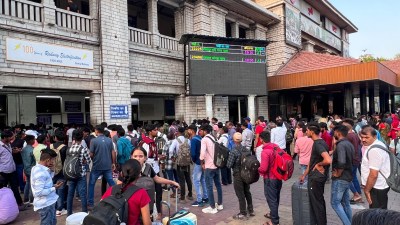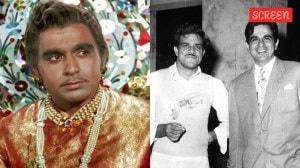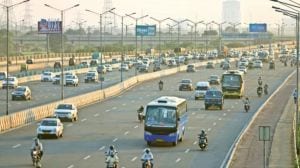Specify tests for PAL8217;s 137D engine 8212; HC
MUMBAI, DECEMBER 8: In a significant direction Chief Justice Y K Sabharwal of the Bombay High Court today told the transport commissioner ...

MUMBAI, DECEMBER 8: In a significant direction Chief Justice Y K Sabharwal of the Bombay High Court today told the transport commissioner to submit to the Vehicle Research and Development Establishment VRDE the list of tests that were to be carried out on a Premier 137D engine that had been sent for testing there. He was hearing a writ petition filed by Premier Automobiles Limited PAL, against the transport commissioner8217;s order banning the registration of the 137D car for commercial use in Mumbai.
The petition is being heard along with the main petition filed by the Smoke Affected Residents Forum SARF that has sought the high court8217;s intervention to control vehicular emission in the city. In an interim order, the high court has already directed that all private vehicles will have to meet EURO-I norms by January 2000 and EURO-II by January 2001. The bench of Chief Justice Y K Sabharwal and Justice Ranjana Desai is now dealing with detailed guidelines for handling polluting diesel vehicles, both private and commercial.
It has been hearing submissions by around 20 respondents impleaded in the case, including automobile giants like TELCO and FIAT, oil companies like IOC, Reliance, HPCL and BPCL, for the past two days. The hearing is scheduled to continue tomorrow.
PAL had challenged the transport commissioner8217;s recent order claiming that the commissioner had never specified the number of tests the 137D engine had to undergo to meet the required standards.
8220;The number of new car models have practically reduced the scope of PAL in the market. Banning the use of the engine for cars in commercial use will have an adverse impact on our survival,8221; said advocate Rajni Iyer appearing on behalf of PAL. She said the problem arose as taxi drivers were converting their petrol vehicles over to diesel engines and it was not the factory-fitted 137D engine which was to blame. 8220;Pollution is something that is a factor of the maintainence of vehicles.8221;
The chief justice noted that at present different standards applied for diesel emissions. He asked the state Transport Department whether it should lay down an emission limit of 30 hartridges when the Motor Vehicles Act provided for a maximum limit of 65, since the recent circular sent to the taximen by transport commissioner V M Lal asked that the smoke emision limit should be 30 hartridges though the act provided for otherwise.
8220;However, considering the level of traffic density in Mumbai, emission levels have to be kept low as the magnitude of pollution is serious,8221; he noted. He also stated that the basic problem arose from commercial vehicles. Taxis were not coming forward for the fitness checks called for by the transport commissioner due to the differences in limits prescribed by the act and those stated by the transport commissioner.
Counsel for the Taximens Union, however submitted that taximen were keen on reducing pollution in the city and was amenable for converting to CNG, but the government would have open more outlets for them for filling purposes than the present 15 stations in the city.
- 01
- 02
- 03
- 04
- 05































